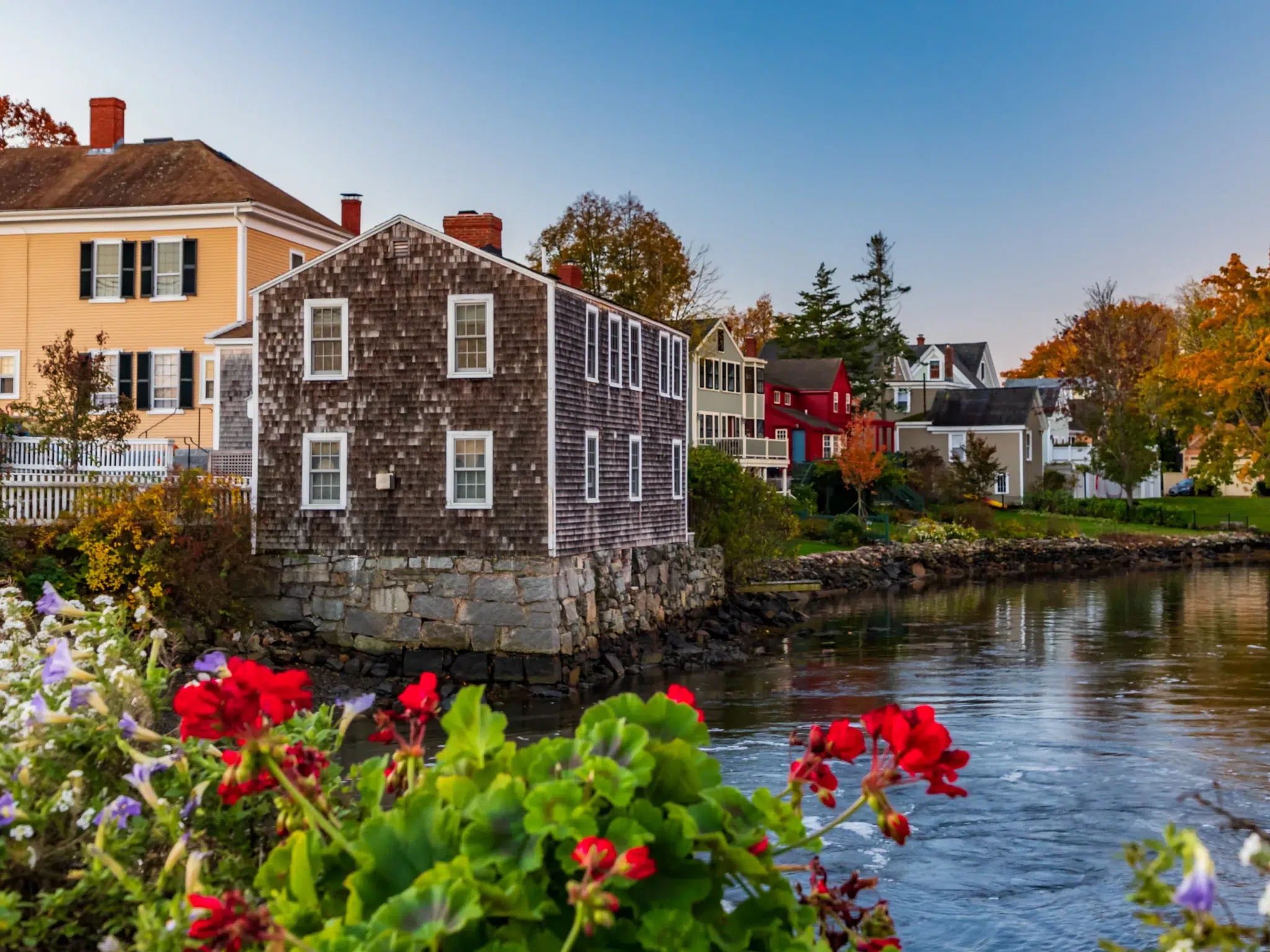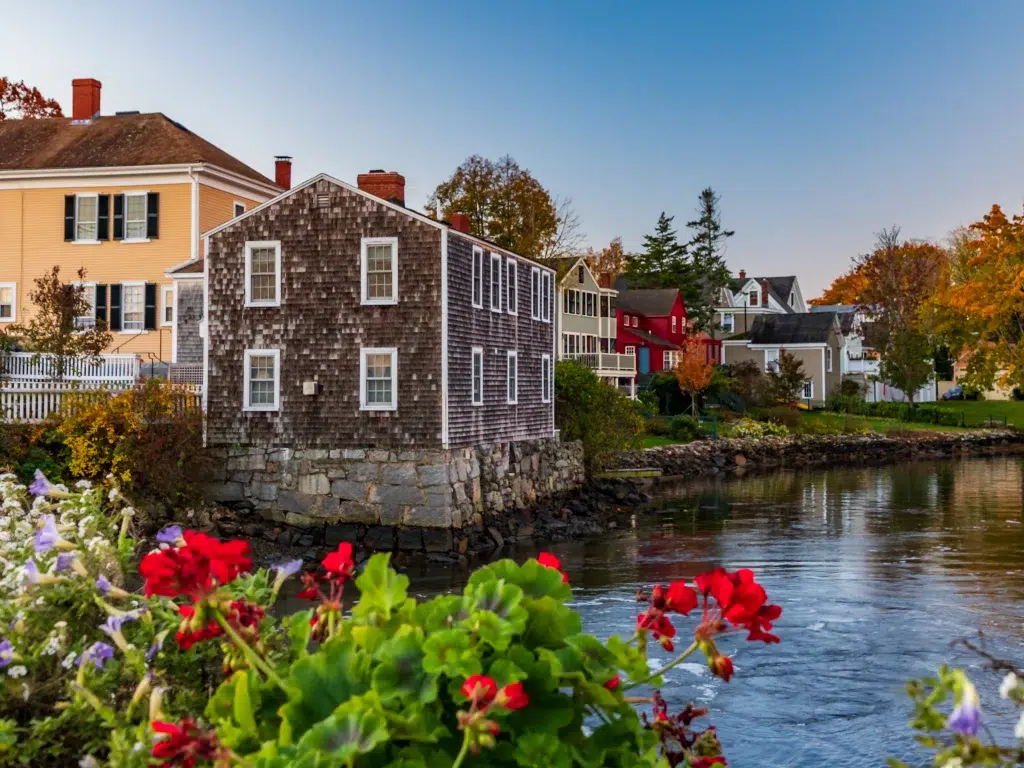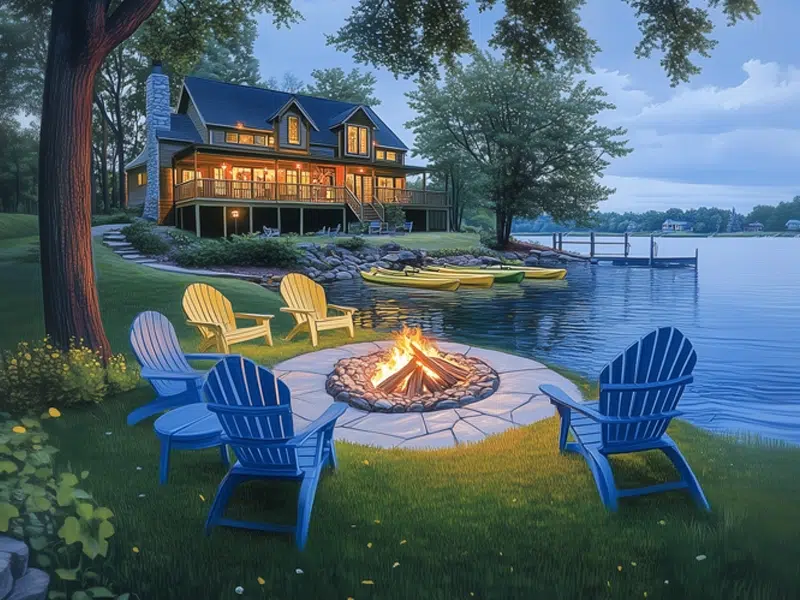New Hampshire Airbnb Laws and Short-Term Rental Regulations — Here’s What You Need to Know
Navigating the landscape of short-term rental laws and Airbnb/Vrbo regulations in New Hampshire requires understanding both state-level guidelines and local ordinances that may apply.
New Hampshire, known for its rich natural beauty and outdoor recreational opportunities, has seen a rise in the popularity of short-term rentals through platforms like Airbnb, VRBO, and others. As such, the state and individual municipalities have developed regulations to ensure that this booming sector operates smoothly, respects community standards, and contributes fairly to local economies.
If you have questions about short-term rentals in New Hampshire, contact Proper Insurance. Our agents are experts in the vacation rental industry in your area. Call 877-441-6292 today.
Most hosts unknowingly have the wrong insurance for short-term renting—don’t wait until a claim to discover your coverage won’t respond! Schedule a quick 15-minute review to verify your protection and gain peace of mind for your property, liability, and business income.

Freedom, New Hampshire
Short-Term Rental Regulations and Laws
Unlike many other towns, short-term rentals (STR) can operate in all districts as long as they have a conditional use permit and meet the regulations in place. As regulations can change it is important to refer to the town’s website for current information.
The following regulations are currently in place:
- Permit: Every short-term rental needs to have an active permit.
- Taxes: Proof of NH Meals and Rooms paid taxes.
- Maximum Stays: The annual limit for STR use is 90 days.
- Occupancy: The maximum number of guests allowed is two people per bedroom plus two people.
- Parking: All parking must be off-street and in the STR lot.
- Point of Contact: Must have a representative accessible during the whole stay including on the phone and in person.
- Notify Guests: Hosts shall post on their listing/website their permit, the maximum occupancy, quiet hours, an evacuation plan, and anything else pertinent to the STR.
- Other: No fireworks, no camping, no trailers, no subletting, or special events.
Gilford, New Hampshire
Short-Term Rental Regulations and Laws
To regulate the impact of short-term rentals, Gilford has implemented a permitting system to ensure the safety, health and welfare of the community. To stay up to date with current regulations, visit the Town of Gilford’s website and refer to the STR Administration and Enforcement PDF.
The following regulations are currently in place:
- Conditional Use Permit: To operate a STR, hosts must obtain a conditional use permit. The permit is valid for three years.
- Site Plan: Provide the city with a sketch to scale of the property showing structures, parking spaces, septic system, wells, property lines, and outside amenities.
- Point of Contact: Provide the name, address, and 24-hour contact phone number in case of emergency and be on site within 60 minutes if necessary.
- Trash Disposal: Create a plan to be approved by the city for trash storage and removal.
- Safety: Must pass an inspection from the Gilford Fire Chief or authorized attendee to ensure the property is up to the state’s fire code and all other applicable life safety codes.
- Notify Guests: Must have the following information clearly posted on or adjacent to the door:
- Name of host with 24-hour reachable phone number.
- The maximum number of occupants allowed.
- The maximum number of vehicles allowed.
- Information about fire pit (if applicable) or pet rules.
- Phone number to Gilford Fire Department and statement to call 911 in case of an emergency.
- A copy of the conditional use permit.
Lincoln, New Hampshire
Implements Short-Term Rental Portal
The town of Lincoln has launched initiatives to help short-term rental (STR) hosts streamline their registration process. In 2022 they created a STR portal where hosts can register their rental properties in minutes. Visit the town of Lincoln website to sign up and get registered. In addition to their online portal, they have regulations that hosts must follow to operate their STR as they strive for safety, neighborhood peace and fairness.
The following regulations are currently in place:
- Taxes: There is a $100 annual fee per tax parcel.
- Permit: Must have a valid permit
- Zoning: Regulations may differ depending on the zone of the STR, be sure to check the Lincolns zoning.
Meredith, New Hampshire Airbnb Regulations
Meredith, N.H. New STR Laws and Regulations
The Town of Meredith has regulations and laws in place for short-term rentals (STRs) to create a safe experience for guests and keep the peace in neighborhoods.
The following regulations are currently in place:
- HOA: Meredith advises hosts to follow the rules of their homeowner’s association.
- Loan Agreement: Hosts should check with their mortgage company to make sure their short-term rental is allowed as hosts need to have lived in the house for at least a year before short-term renting. We are a proud partner of Host Financial, and recommend reaching out to them.
- Insurance: Hosts should review their insurance policy to confirm they are insured for short-term rental use. Many traditional homeowners and landlord policies leave short-term rental owners exposed to property and liability insurance gaps. The best protection for your short-term rental is the policy by Proper Insurance which provides comprehensive coverage for property, liability and business revenue while also addressing risks like squatters, bed bugs, guest-caused damage and more. Work with an agent to understand your policy’s gaps and to see if Proper Insurance is right for your short-term rental scenario.
- Taxes: Hosts should check with a tax professional to ensure they are paying their respective taxes.
- Safety: Each home should be equipped with working CO2 alarms, fire extinguishers, and fire alarms.
- Rental Agreement: Hosts should provide a rental agreement for guests to use during their stay. This could include:
- Point of Contact: Provide a local person to contact in case of emergency
- Expectations: Identify the expectations of being a guest in said home and list unacceptable behaviors.
- Complaints: Notify guests that any complaints will be received by the town and forwarded to the owner and manager. Guests will be held accountable for unacceptable behavior which could involve an early termination of their stay.
- Occupancy: Identify reasonable occupancy for the home based on number of bedrooms.
- Other: Notify guests of any rules or laws around noise, quiet hours, parking instructions, dogs, fireworks or anything else pertinent to the home or stay.
- More Information: To learn more, visit Meredith of New Hampshire’s Website.
Verify Your Short-Term Rental Insurance Today
Interested in a short-term rental insurance policy to protect you and your business from liability and damage claims?
Proper Insurance is the nation’s leading short-term rental insurance provider, protecting homes in all 50 states and replacing inadequate Homeowners/Landlord policies. Their comprehensive coverage meets or exceeds standard short-term rental requirements with $1M Commercial Liability (CGL) and unmatched protection for your property and revenue. Additional custom coverages include guest-caused theft/damage, amenity liability (bikes, kayaks, hot tub, etc.), bed bugs, fleas, squatters, and more.
Please note: The information provided is intended as a guide and may not be comprehensive or current. Regulations may change and could vary by area or situation. Always consult local authorities or a legal professional to ensure you have the most accurate information for your short-term rental property.




